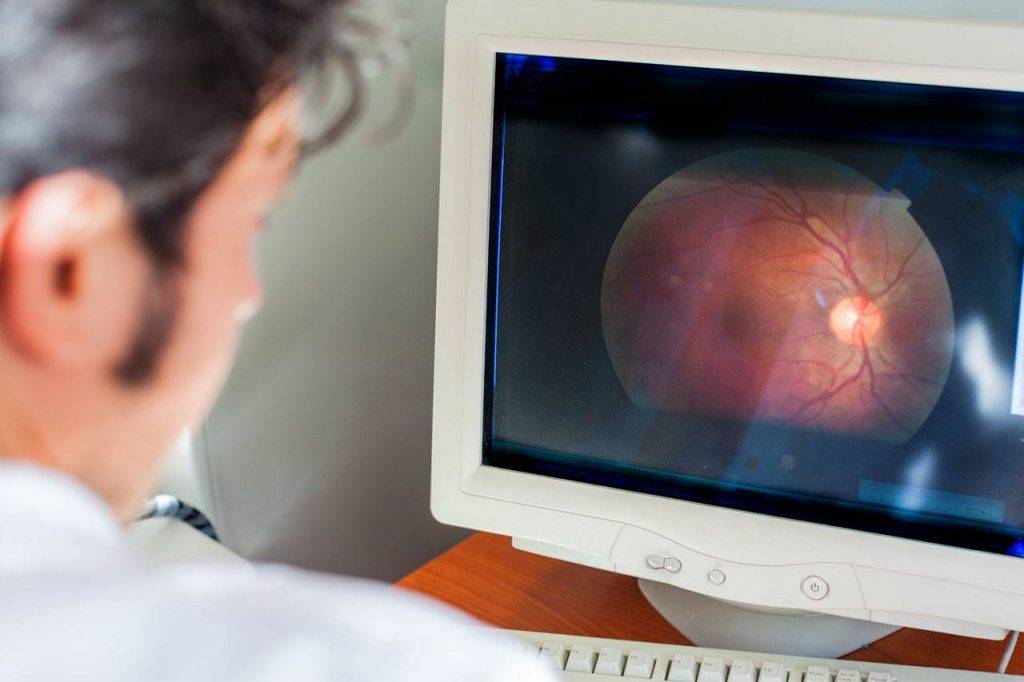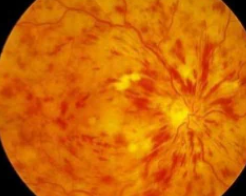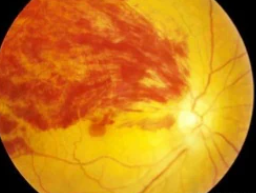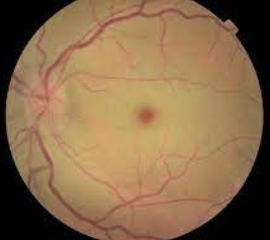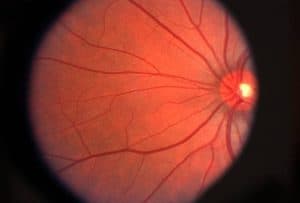Have you noticed any sudden changes in your vision? You may have macular edema.
What is macular edema?
Macular edema is the number one cause of vision loss, occurring most often in people with type 1 or type 2 diabetes.
The macula is a critical part of the eye, and good macular health is essential for clear vision.
The macula is the central portion of the retina, responsible for central vision and vision for fine details. When retinal damage occurs from diabetes or other eye conditions, the macula can become swollen from a build up of fluid.
This swelling of the macula causes blurry vision, and often results in vision loss and permanent blindness if not treated early on.
Symptoms of macular edema
The symptoms of macular edema range from mild blurry vision to severe vision loss, and can affect one or both eyes. If only one eye is affected, blurred vision may not be apparent until the condition advances to a later stage.
Additionally, the severity of each symptom can vary and will depend on a sudden onset versus a gradual progression of the condition.
Common symptoms of macular edema include:
- Blurry or wavy vision
- Blind spots
- Colors appear dull
- Trouble with facial recognition
- Difficulty reading books or text on a screen
- Difficulty driving
What causes macular edema?
Macular edema occurs when the macula, the central portion of the retina, becomes swollen from a buildup of fluid.
This can occur from any disease or condition that damages the blood vessels in the eyes, causing them to leak fluid or blood.
The most common causes of macular swelling include:
1. Diabetic macular edema (DME)
Diabetic macular edema (DME) is a complication of diabetic retinopathy, and one of the most common causes of macular swelling and vision loss in patients with diabetes.
An estimated 745,000 Americans have DME and over half of them have yet to be diagnosed.
Diabetic retinopathy typically develops from chronically high levels of blood sugar in the body that causes progressive damage to the retinal blood vessels. These fragile blood vessels are prone to breaking and leaking fluid or blood into the retinal tissue.
When fluid leaks into the macula, it causes the macula to swell— resulting in DME.
Diabetic macular edema usually occurs in both eyes, and causes progressive damage and vision loss with prolonged uncontrolled blood sugar levels.
SEE RELATED: How is Macular Edema Treated?
If you have noticed any new changes to your vision, contact an eye doctor near you as you may need urgent treatment for swelling in your eyes.
2. Age-related macular degeneration (AMD)
Age-related macular degeneration (AMD) occurs when the macula begins to break down, most commonly as a result of aging.
There are two forms of AMD, wet and dry. Wet AMD is the more severe form that occurs when abnormal blood vessels grow beneath the retina, and leak blood or fluid into the macula.
There are around 200,000 new cases of wet AMD each year in the U.S.
3. Eye surgery
Any type of eye procedure, such as cataract or glaucoma surgery, or a procedure used to treat retinal disease, can lead to macular edema if excess pressure is placed on the fragile retinal blood vessels.
Your eye surgeon will discuss this risk with you prior to your surgery, including how to recognize the signs of macula edema and what you can do to minimize your risk.
4. Retinal vein occlusion
Branch retinal vein occlusion (BRVO) occurs when the veins in the retina become blocked or clogged. This condition tends to occur with diabetes, atherosclerosis, hypertension and glaucoma.
More than 1.1 million Americans are affected by RVO, making it a leading cause of vision loss from retinal vascular disease.
Retinal vein occlusion often leads to poor fluid drainage and fluid buildup in the retina. This causes increased pressure in the blood vessels and eventually leads to damage and fluid leakage into the macula.
5. Uveitis
Uveitis is a group of inflammatory eye diseases that leads to swelling of the uvea, the layer of blood vessels at the back of the eye responsible for supplying blood to the retina.
Uveitis is a rare condition, affecting only 38 in 100,000 people, but macular edema is the primary cause of vision loss when uveitis is left untreated.
The primary cause of uveitis has yet to be discovered, though it can result from a viral or bacterial infection or from an autoimmune disease.
LEARN MORE: Guide to Retinal Disease
If you or a loved one experience sudden blurry vision, immediately contact an eye doctor near you.
When fluid builds up in the macula in the back of the eye, sudden vision loss can occur.
Fortunately, if detected early, macular edema can be treated and vision can be restored.

